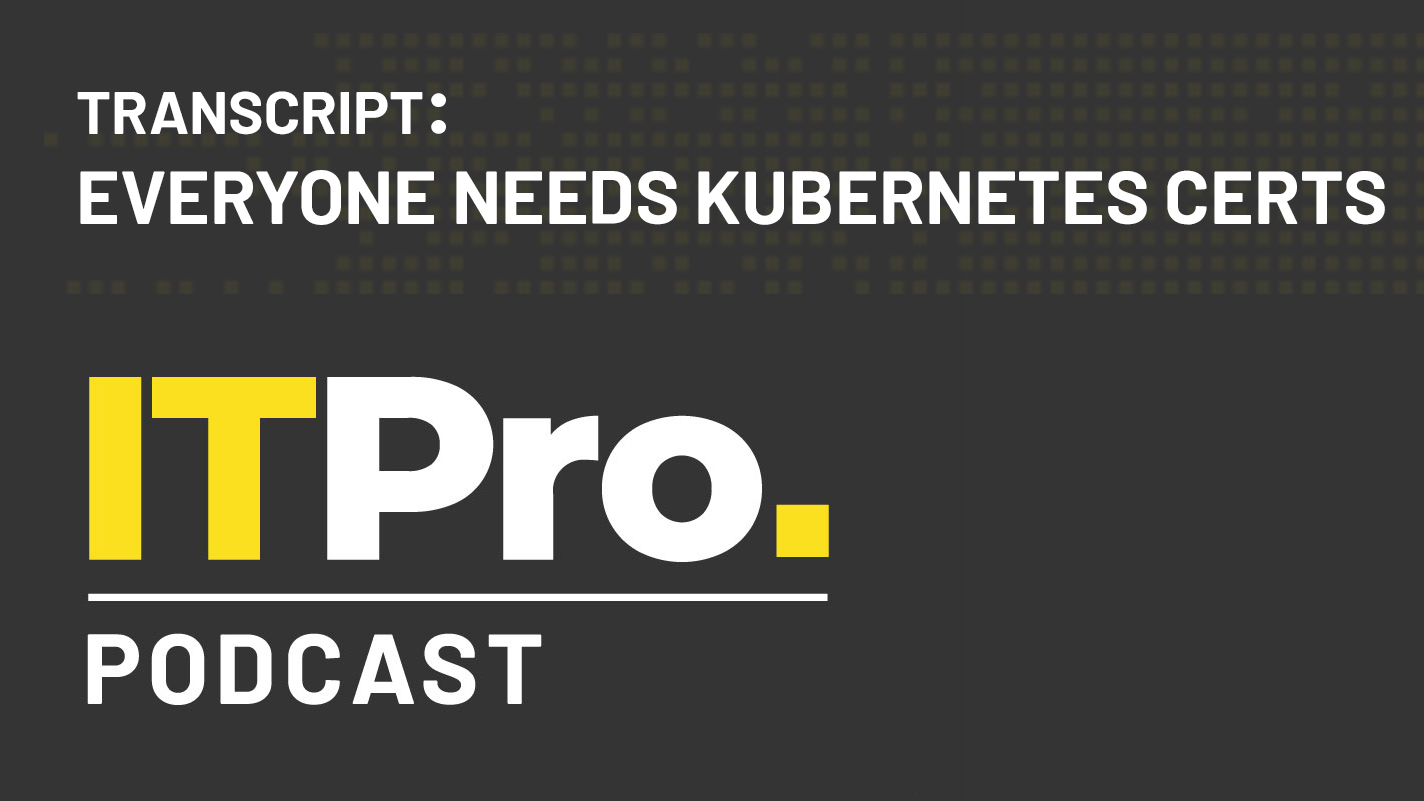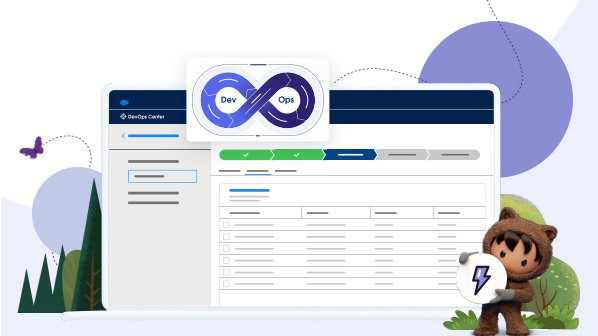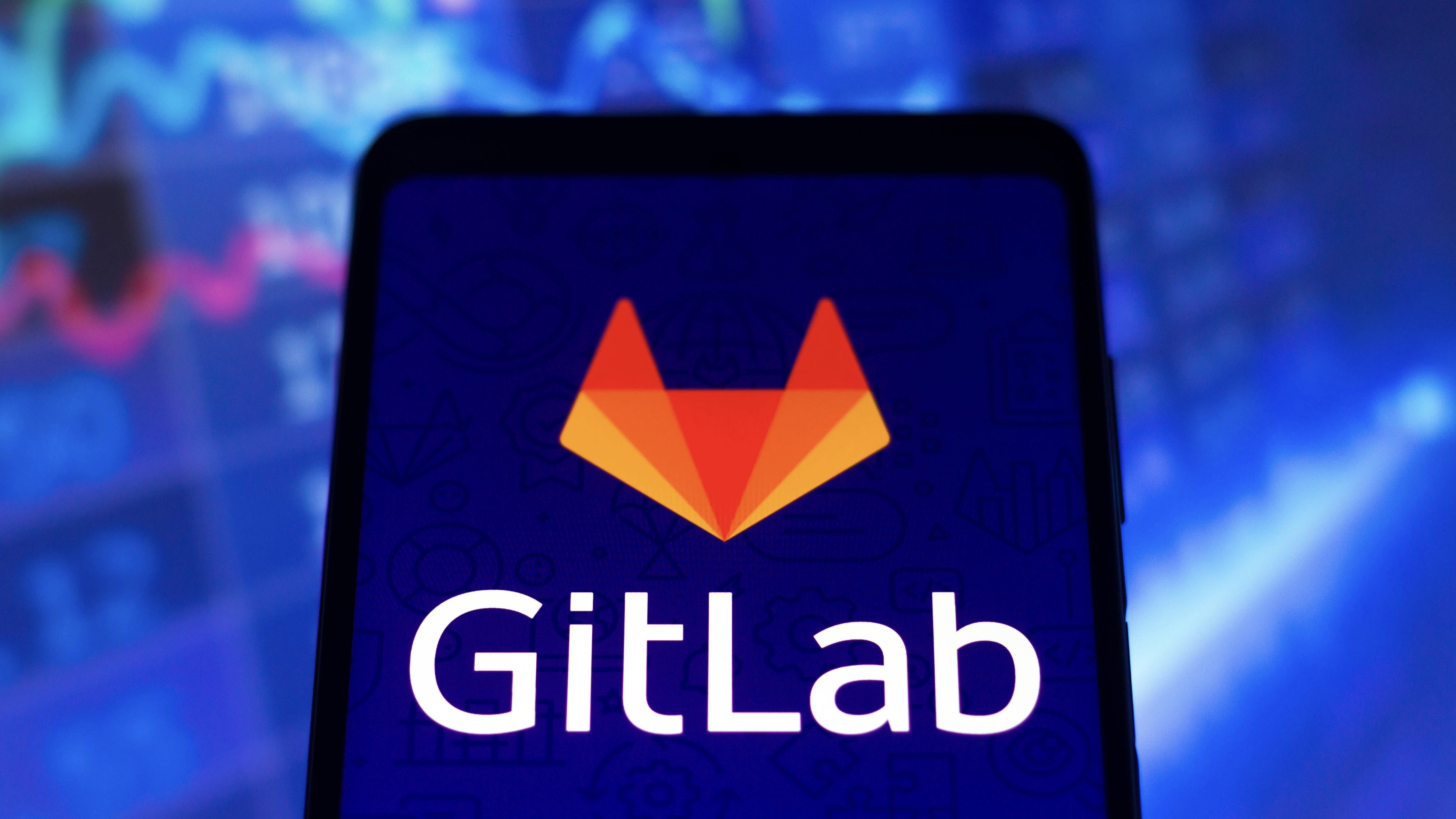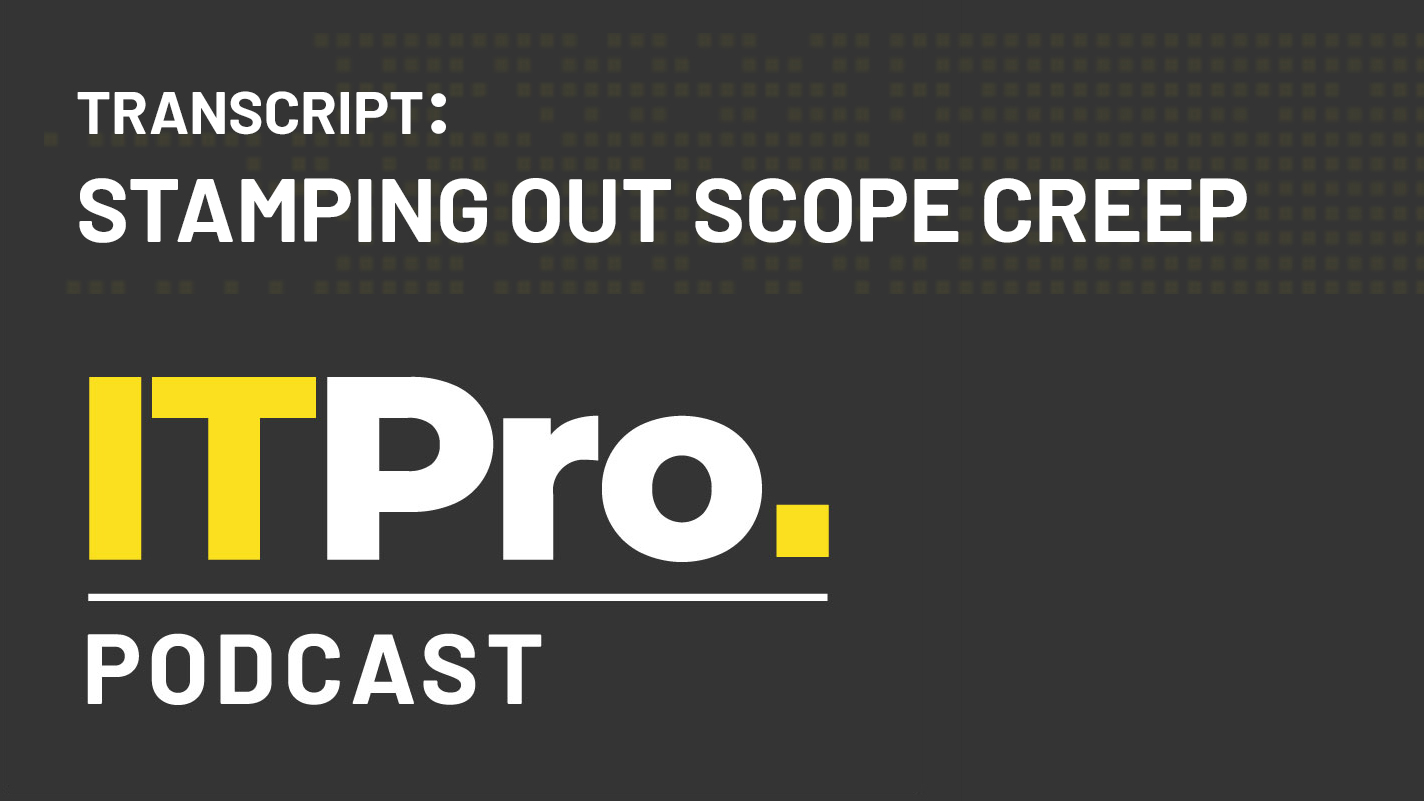
This automatically-generated transcript is taken from the IT Pro Podcast episode ‘Everyone needs Kubernetes certs’. To listen to the full episode, click here. We apologise for any errors.
Adam
Hi, I'm Adam Shepherd.
Sabina
And I'm Sabina Weston.
Adam
And you're listening to the IT Pro Podcast, where this week we're digging into the recent demand for Kubernetes skills.
Sabina
According to the Linux Foundation's 2021 Open Source Jobs Report, demand for IT professionals with Kubernetes certifications has shot up by more than 450% since 2019, with almost 90% of hiring managers reporting that they are prioritising the recruitment of certified professionals.
Adam
But what does this explosion say about the state of enterprise open source adoption, and is certification the right route for organisations seeking to plug skills gaps? This week, we're joined by Amanda Brock, CEO of OpenUK, to find out more about why Kubernetes is big business. Amanda, thanks for joining us.
Amanda
Thanks very much for having me along today guys.
Sign up today and you will receive a free copy of our Future Focus 2025 report - the leading guidance on AI, cybersecurity and other IT challenges as per 700+ senior executives
Sabina
Okay, so, Amanda, how does the level of interest in Kubernetes certification compare to the demand for other open source technologies?
Amanda
That's a very good question. I don't think we have the data on some of the other open source technologies in the way that we have it for Kubernetes, simply because Kubernetes has been such an explosion. And it's so essential today to business. I see particularly in the UK that we have a lot of leadership and growth around Kubernetes, in particular. So it seems to be that it's pretty much ahead.
Adam
And I, I would argue the fact that we have so much more data on Kubernetes, in particular, kind of demonstrates the overwhelmingly dominant position that it has kind of among other open source technologies.
Amanda
No, no, no, no, I think you're comparing apples with pears there. So what you're comparing Kubernetes against is other cloud technologies and containerisation technologies, really, whereas other open source may be organised in a slightly different way. Kubernetes is super structured, brilliant governance through the Linux Foundation who do a lot of reporting, you might not see that in every other area of open source. So I'm not sure that the comparator should be other open source. I think the real comparator should be other containerisation and cloud technologies.
Adam
So platforms like Docker, for example, which, you know, enjoyed a lot of early success, I think it's fair to say, but was just absolutely eclipsed by Kubernetes over the last several years. But anecdotally, when you're when you're talking to organisations in the field, to, you know, member organisations and partners and people like that - what is the kind of the ratio of organisations that are looking at Kubernetes versus organisations that are looking at other kind of open source infrastructure platforms; not necessarily kind of containerisation platforms, but other open source things?
Amanda
I would say they're at equilibrium. So when we talk to people, they're running Kubernetes, everybody is looking at Kubernetes, but they're not looking at it in isolation. What it's done is opened a floodgate in many ways for those who might not understand that they're using open. And the fact that they bring it into organisations, or they're using it via third parties, has opened up the opportunity for more tolerance, acceptance and understanding of open source generally, I think, so I don't think that you can see, you know, everybody's using Kubernetes, nobody's using other open source, I think what you're seeing is people are acknowledging and understanding their use of Kubernetes. And that's allowing their internal processes, their policies, their governance, to improve to facilitate the adoption of other open source.
Adam
Cause of course, historically, open source has had a bit of a mixed relationship with, I think enterprises in particular, where there's a huge appetite for it in the in the IT team, because, you know, there are just so many useful tools and utilities and kind of back end things, bits and pieces that kind of rely on open source. But on a high level, there's quite often a bit of trepidation. I think it's fair to say, about deploying open source at a kind of policy level, if you like.
Amanda
Yeah. And you obviously know my background. I don't know if people listening will, I was a lawyer for 25 years, I stopped being one a couple of years ago, I spent five years from the beginning of 2008 in a company called Canonical, one of the biggest open source companies. Definitely biggest in the UK, at least when I was working there, and I set up and ran the legal team. So for me, my conversations day on day on day, particularly as I was the escalation point in all the commercial contracts, was explaining risk; getting people to understand open source, getting them to understand governance. Now, I left there at the end of 2012, almost 10 years ago. And what's happened in that 10 year period has been that there is a massive, massive shift. And I don't know how much even you two will understand what's caused that. Some of it is definitely Kubernetes in the cloud. Some of it is around Git and the the massive growth of these distributed repos where the DevOps community, the internal engineers, can now go and get the software they want, they don't have to go through procurement, they don't have to go through legal, if your organisation is doing it right, you will have policies and processes that govern how your open source is brought in. And you'll know what's going on in your organisation. But your developers are going to be doing this and using it, whether you like it or not, and then don't have to come back to legal and procurement until you get to the stage of money changing hands. And that tends to be for a subscription or a support contract or some sort of implementation that you might need. So actually, the power shift, and the risk shift has really come from the internal engineering CIO, CTO community.
Sabina
Interesting.
Amanda
It's massively different from a decade ago. And what that's done is cause you know, we did some survey outputs last year or earlier this year. And what you see is 89% of companies in the UK actually running open source and knowing they're running it. And I think the trajectory, we're on now is just so rapid, and so high, that there's no way of avoiding it. So you're right, Adam, Kubernetes has been a big opener up of that. But what we're seeing is Kubernetes taking over from proprietary cloud tools and container orchestration tools, and facilitating greater adoption of open source generally.
Adam
Yeah, cause, of course, Kubernetes is very big in the kind of infrastructure and kind of DevOps side of business. But there's also in recent years been increasing adoption of things like Python, for data science and data modelling, which has also kind of exploded in the last couple of years.
Amanda
Absolutely. And I think if you look at our kids course, which is part of the OpenUK Kids Camp, I think it's lesson five, where we talk about the Python Foundation and Guido van Rossum who created it. We have a lovely fact. And the fact is that there are more children in the UK learning Python than French. Now that might be a post-Brexit thing. But there we go. I knew you'd like that! And I was at something. I was at an event this week at the House of Lords where Chris Philp, the new minister for digital spoke, and he was really emphasising the need for AI and data scientists. And I think that's going to be massive on the government's agenda next year. And of course, as we know, most of the languages that are sitting behind that are open. So we're only going to see more push into that education and skills for data scientists.
Sabina
Why have demand for Kubernetes certification in particular exploded so dramatically?
Amanda
I think it's a couple of reasons. So when you look at Kubernetes, you see something that is infrastructure that's really important, digital transformation has gone at the scale it's gone. Kubernetes allows you to have interoperability. In theory, it removes vendor lock in because it's used universally, it's a sort of de facto standard in the cloud. So and then containerisation, of course, generally, not just in cloud. So what you then see is a need for those skills. Now those skills are in demand and in short supply. So there's a mixture of hiring people from the marketplace, and also where those can't be found, training your existing staff. And it's one of the things that we've identified as a straight benefit of open source is the skills development on the job. With Kubernetes certification, there's a lot of structuring around it, and it's quite different. And I think there's that difference that's making it so popular alongside the scale of adoption. And what I mean by that is that the certification isn't your usual multiple plot choice test, right? You can't just tick box A the whole way through and find that you've passed. You actually have to answer; do you know, you're laughing, but the American Bar, American lawyers qualify in that way. That the bar exam has multiple choice as well. But what you've seen here is a shift and you actually have to be able to write the answers. So you either know it, you either understand it or you don't. And I think that's been a big part of the certification. I also happen to know that they did something called the massively open online course for Kubernetes. And that had 165,000 enrollments in 2020. It's massive.
Adam
So Kubernetes certification is obviously something that's very attractive to learners and developers who want to broaden their skill set. But what I think is really interesting is that there has been a corresponding demand from employers and from businesses who want these certifications; more so, in fact. The Open Source Jobs Report stat of 450% growth is crazy, crazy high. And that's really interesting, because certifications are often something particularly in you know, emerging technologies like Kubernetes - you know, depending on whether or not you think Kubernetes is still emerging - it's, it's often something that's looked on as a nice to have, rather than something that is being proactively sought out and fought over by organisations.
Amanda
It's interesting, I think it's way beyond a nice to have. We have at OpenUK an entrepreneur in residence, chap called Matt Barker, who I worked with at Canonical. And he set up one of the early stage Kubernetes companies, one of the first in the world. And as I'm talking to you, I'm quickly flicking through his profile on LinkedIn. So he set it up in 2015. So you know, that's what, seven years ago, he's created, it sold it, now running it as part of another enterprise. And, Matt, I'm going to give you a sneak preview, this will probably have been released before this podcast comes out. But Matt's about to share his entrepreneur in residence report. And he steals a line, I can't remember who originally gave this quote, I know Tony Blair used it but he's not the originator. And Matt talks about education, education, education. And he talks about educating our young people, he talks about reeducating our business people, and educating our government in that report. And you know, after all the work he and the Founders Forum have done, they come back to that. Now, Matt's also been involved at Bristol University in helping them create a Kubernetes course for students. We'll be running a founders course from 21st of January, helping UK founders broaden out their skills around things like product development, revenue models, that kind of practical open source stuff. But we're also talking to universities at scale, and we're talking to a number of organisations about building an apprenticeship module. And it will be inevitable that Kubernetes will be part of that. There is no way around it at this stage.
Sabina
That's amazing, that's really good. Can I ask what like, how do you see an apprenticeship programme with Kubernetes involved? Are there any sort of like specifics?
Amanda
Yeah, we've been very good at teaching people. So we've been very good at sort of teaching go and code Python, but not teaching them why they do things in a certain way, or how the, the openness of that's originated and the governance and the practicalities. So what we're trying to do is merge both the functional practical training with the understanding, and I think that understanding really empowers people and lifts them up to a higher level.
Sabina
Definitely, yeah.
Amanda
We're very keen on that.
Adam
So is this massive demand for Kubernetes from the business community, is that being driven by a skills gap, do you think?
Amanda
I think there is a skills gap and I think it's a universal skills gap caused by the scale of digitalisation that has really been put under a magnifying lens through the pandemic. You know, if you go to McKinsey or Deloitte, they'll show you the massive pace of adoption and digitalisation in the last two years, I used to refer to them as reluctant technologist because there are all these companies, you know, I mean, basically, they're either producing their products, distributing it, or having it consumed via digital. And that's been a shift over the last decade. For those of us who worked in it, it was very confusing that it wasn't already happening. But you can understand how industries had to shift to that. And really, I think there's a bigger picture here, which is that we're also going to see the public sector and governments moving to it. You know, we're going to see UK utility shifting over to that. I think Laura Sandys who's running the digitalisation task force for the energy sector, calls it the plumbing. Our infrastructure, our roads and bridges; the future of that is digital in the UK and beyond. And we're going to see, I think, real leadership in the UK around that transformation. One of the things that we've always done well as infrastructure, whether it's digital or not, and we have amazing engineering communities, which I think is why the UK has a leadership role already around CNCF, around cloud native. You see people I've mentioned, Matt Barker, we've got Alexis Richardson. People like Liz Rice who's the CTO at CNCF, Cheryl Hung, Katie Gamanji, there's a whole crowd of those folk, based in the UK. And I suspect that that will really help us in building those skills now that people are understanding the gap.
Sabina
And what is the potential impact of this skills gap?
Amanda
There's obviously an immediate problem with the lack of those skills and the need to get people trained quickly and effectively. I think that governments across the globe are recognising that. I don't know, I don't really want to get into the politics of it all. But I actually think that the UK also is really beginning to come to terms with the fact that we need to equip people digitally and quickly. We've got to implement it. But I think there's an understanding in the public and private sector now, about that.
Adam
Do organisations risk kind of falling behind competitors if they don't have Kubernetes skills, specifically?
Amanda
I think it's a no brainer, you're going to have to have it because it has become such a de facto standard to avoid lock-in. And, you know, the theory is it's entirely interoperable. I know, sometimes that isn't quite the case with cloud companies. But I think you will see that. And then we've got these conversations going on across Europe, across the UK, in fact, across the globe, again, about sovereignty. And everybody is looking at managing their own cloud, about managing their infrastructure, building out that infrastructure locally, which means that there's a, an increased desire locally to have it, as well as just companies in their day to day digitalised transformation. So yeah, I think we have to have it and we have to have it as soon as possible.
Sabina
Should organisations, according to you, consider retraining existing technical staff to fill the supposes skills gaps?
Amanda
So I think that we can all accept that there are skills gaps, I was on a podcast a few months ago with OVH, ATOS; all of them were looking to recruit in the UK, with these skills. Now, I think the skills gap, we just have to accept is there. Obviously it's great to train people. And it would be ideal to bring people in with those skills. But there's a shortage. So you're balancing those two. And I think that we will have to retrain people, or encourage people to train in this space. I suspect that that's where the work that's been done in the last few years will really come into its own with CNCF, the Cloud Native Foundation, which has got this whole ecosystem around Kubernetes. So it doesn't just offer Kubernetes training. It offers training in associated products as well.
Adam
What are some of these associated products? Because obviously, one of the the advantages of Kubernetes is that it's part of a wider ecosystem that is kind of very complementary. So stuff like serverless, serverless computing, dovetails very naturally with it. Microservices architectures, of course, is a big part of Kubernetes. What are some of the kind of inroads, if you like, that can lead people into Kubernetes?
Amanda
So rather than trying to list things out, I would send anybody to the CNCF.io site. There's a chap sadly, he died last year and not as a consequence of the pandemic, who did the most amazing work in creating our cloud native landscape. And there is actually a card that you can see on there, which sets out the whole landscape and breaks it up into categories. And then within those categories, shows you products and what's open and what open interfaces with. And I think that's been used in by Linux Foundation since Dan Kohn created it, across other areas of their work, but it was a first and I remember seeing it maybe 2017,18 at one of the KubeCon conferences, and I would send anybody to that to get themselves a picture of the landscape. The other thing that they have that you may not have seen is Phippy. Do you know who Phippy is?
Adam
I do not.
Amanda
Ahhh, Phippy's a giraffe. Phippy is a little giraffe. And again, we've shared Phippy and friends across our kids camp. Cloud Native have these amazing books for very young children explaining containerisation orchestration, microservices, the whole infrastructure, for I would say late primary school, early high school kids. And there's a whole series of characters around it steering the Kubernetes ship.
Adam
Absolutely. We'll put a link to that in the show notes.
Sabina
Yeah, it'll be amazing. So it's a giraffe, yeah?
Amanda
It's a giraffe.
Sabina
That's so cute.
Adam
That is adorable.
Amanda
She is. Yeah, well, she's a bunch of friends, there's little zebras and all sorts in there. It is really wonderful the way it's been done. And I think it was a community initiative. But what what they've done, which in some ways I tried to emulate is they've created really accessible user interfaces. So it makes it something when you come to that learning, and that skills development, it's less intimidating than some areas.
Sabina
Yeah. Yeah.
Adam
So speaking of that side of things, you've mentioned the kids camps, and the fact that you're teaching Python in them. Firstly, are we teaching kids enough about these kinds of platforms, about Kubernetes, and containerisation, and all of the kind of related ecosystem stuff? And also, how long do you think it is going to be before we start seeing Kubernetes and containerisation as a foundational, you know, everyday part of hobbyist citizen development?
Amanda
Really interesting. So I'm hoping that you will see some of that via us next year. We talk in our kids course. So I'll take a moment. Yeah, it's not a, an advert as such, but I'll take a moment to talk about what we did. So we did a first course last year, we didn't intend to do it, we intended to run a competition, we pivoted because of the pandemic, we created a course to give to kids who were stuck at home during lockdown. We realised it was probably something that other children would enjoy, other young people would enjoy. So we did a glove kit giveaway of the Mini.Mu glove. And we did over 3,000 of those and kids joined a summer camp. And the Mini.Mu glove is inspired by MiMU; Imogen Heap, the singer worked with a lady called Helen Leigh to create this glove. And it was retailing for sort of £30-£50. So we gave away about 3,000 of those last year. This year, well this year was even better. So this year, I got the bit between my teeth. And we started understanding that we're building a course. And what we did was we took the Open Source definition, which has got 10 elements to it, we broke that down. We added coding skills where we have I think, five make code which is a block code lesson that goes with the glove and the Micro:bit. Then we did four Python lessons and one JavaScript. And around those we explained the Open Source Definition and sustainability. And we start to teach the sustainable development goals and interface the two, we were super lucky, our friends at NASA created a column across those for us, the ODI creating something on data; I know NASA, gets me every time as well.
Sabina
It's very, very good to have friends in NASA always.
Adam
Yeah. Friends in high places, you might say.
Amanda
Yeah, well, lots of open source on Mars. So it's one of those things that allowed us to really engage with kids. And unfortunately, the MiMU, Mini.Mu glove was withdrawn, and I'd raised the money for them. So we went out and built our own glove with MiMU's help. And we've just distributed 5,000 of those to allow kids to do this course. So you can go to openuk.uk/openkidscamp, we're on lesson seven on Monday, that course teaches data centres, a little bit about cloud, containerisation, it starts to contextualise some of this stuff, and for us, it's key stage three. So age 11 to 15. By next year, we will have an apprenticeship knowledge module; as with everything we do, it'll be Creative Commons, people will be able to take it and use it wherever they want to. But I'm hoping that that will also lead into either a GCSE or a T-level or a Scottish higher, something like that, that we can put out and just share with people and let them start to learn and be educated and educate themselves around it.
Adam
That's really interesting.
Amanda
If we wait, I mean, the current curriculum, I'm told and I, you know, I'm not an educational specialist, but the current curriculum is from a few years ago and changing that in a formal way takes lots of parties to agree. And it will take time, and I don't think on digital skills that we have that time. So we've just gone ahead and done what we can.
Adam
Absolutely, it's the problem that you see so often with kind of government tech policy. Policy takes so long to agree and finalise that by the time you finalised it, the technology that it's dealing with has moved on.
Sabina
So we've spoken about how this can be used with, with younger people, especially specifically children. But let's talk about people who are on the job market right now and are applying for jobs; do you think that that organisations should be looking for certifications in particular, when trying to fill these gaps or does that risk excluding potential talent?
Amanda
I hope it doesn't risk excluding potential talent. I don't believe that it does. Because the ability to go and get the certification is not massively expensive. It's something that's freely and widely available. What I've experienced is the and this influences everything I do around education in coding. A number of people I know, good friends of mine have not gone through the university system, they've not gone through that traditional tertiary education system. And they've, if you measure success in money, which I don't, they've made a lot more money than me.
Sabina
So did they, did they go through like apprenticeship programmes, or...
Amanda
Sadly not, because most of them didn't have the facility and I think apprenticeships programmes, the right apprenticeship programmes, I think really would help. For many of them, they didn't fit within the university structures, they just didn't appeal to them, or they dropped out, right, and they've gone off, and they're largely self taught. And I think for a lot of engineers, that's the way they've come through. And the more guidance we can give, and the more that that's simple, practical, accessible, the better. So having something like a certification rather than requiring somebody to go off and commit to years of college, creating something that they can do while they're on the job, I think is really important. And it makes it much more accessible.
Adam
Yeah, absolutely.
Amanda
What we also have to be doing is encouraging a more diverse community into that. And that still comes back to schools. And if it's not the computer science teachers, it's the careers advisors, encouraging, you know, an ethnically and gender diverse group into this space.
Adam
Yeah, absolutely. And that whole self taught programmer thing, I think, is becoming a lot more, as you say, a lot more accessible and a lot more common. I would encourage listeners to check out the podcast episode that we did with friend of the podcast, Jessica Cregg, who did that exact thing of, of retraining; not even retraining, but kind of teaching herself programming, and she is now firmly entrenched in a tech role at LaunchDarkly. So then, you've mentioned that these certifications are kind of fairly, fairly widely available, and the courses and the course materials are very open and accessible. Would you encourage developers to have a go and to get stuck into learning Kubernetes if they're interested?
Amanda
I think many of the community that I work with already has, to be quite honest. And they certainly are advocating it across the board. I definitely recommend it. I think if you look, as I've said many times in this interview, if you look to the UK, our engineering community is really really good at infrastructure. We've got an incredibly strong Kubernetes community, incredibly strong cloud native community. They're very welcoming Cheryl Hung, who you probably know runs meetups in London. There's other meetups. Lewis [Denham-Parry] is running them in Wales, you know, there's folk doing this all across the UK, where you can go and dip a toe in the water if you want to sort of chat to people about it. If you can't find them, come back through me. You'll find OpenUK or me on Twitter, DM us and we can put you in the right direction.
Adam
Well, unfortunately, I'm afraid that's all we have time for this week. But thank you once again to OpenUK's Amanda Brock for joining us.
Amanda
Thanks very much, Adam.
Sabina
You can find links to all of the topics we spoken about today in the show notes, and even more on our website, itpro.co.uk.
Adam
You can also follow us on social media and if you like leave us a rating and a review. We'll be back next week with more analysis from the world of IT but until then, goodbye.
Sabina
Bye.
ITPro is a global business technology website providing the latest news, analysis, and business insight for IT decision-makers. Whether it's cyber security, cloud computing, IT infrastructure, or business strategy, we aim to equip leaders with the data they need to make informed IT investments.
For regular updates delivered to your inbox and social feeds, be sure to sign up to our daily newsletter and follow on us LinkedIn and Twitter.
-
 I couldn’t escape the iPhone 17 Pro this year – and it’s about time we redefined business phones
I couldn’t escape the iPhone 17 Pro this year – and it’s about time we redefined business phonesOpinion ITPro is back on smartphone reviews, as they grow more and more intertwined with our work-life balance
-
 When everything connects, everything’s at risk
When everything connects, everything’s at riskIndustry Insights Growing IoT complexity demands dynamic, automated security for visibility, compliance, and resilience
-
 Breaking boundaries: Empowering channel partners to unite DevOps and MLOps for a stronger software supply chain
Breaking boundaries: Empowering channel partners to unite DevOps and MLOps for a stronger software supply chainIndustry Insights Unifying DevOps and MLOps speeds delivery, strengthens governance, and improves software supply chain efficiency
-
 Half of developers want to quit over "embarrassing" tech stack
Half of developers want to quit over "embarrassing" tech stacknews Upgrade CMS and offer AI or risk your devs walking away, finds survey
-
 A DevOps guide to the Salesforce platform
A DevOps guide to the Salesforce platformWhitepaper Learn how to ship code faster, safer, and with agility.
-
 What is platform engineering and will it see the end of DevSecOps?
What is platform engineering and will it see the end of DevSecOps?In-depth Platform engineering is not just the latest industry buzzword but could represent a profound change in how software is developed and governed
-
 AI acceleration represents a ‘tectonic shift’ for DevSecOps
AI acceleration represents a ‘tectonic shift’ for DevSecOpsInterview David DeSanto, chief product officer at GitLab, believes there’s still much more to come for AI use cases in DevSecOps
-
 Podcast transcript: How to scale a tech platform
Podcast transcript: How to scale a tech platformIT Pro Podcast Read the full transcript for this episode of the IT Pro Podcast
-
 The IT Pro Podcast: How to scale your tech platform
The IT Pro Podcast: How to scale your tech platformIT Pro Podcast For startups, building a platform is only half the battle - after that, you’ve got to grow it
-
 Podcast transcript: Stamping out scope creep
Podcast transcript: Stamping out scope creepIT Pro Podcast Read the full transcript for this episode of the IT Pro Podcast

